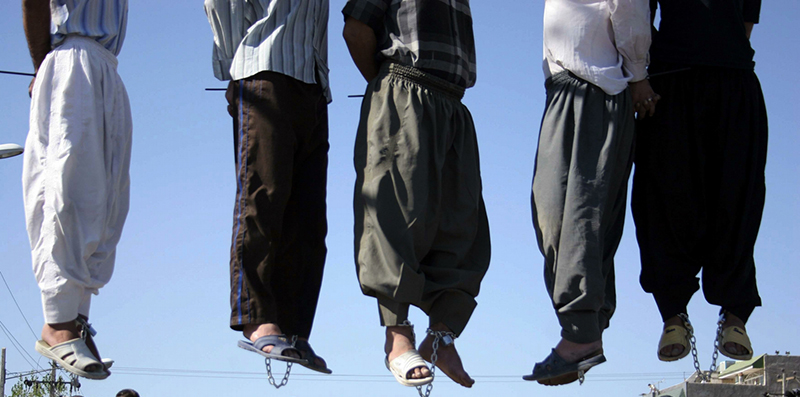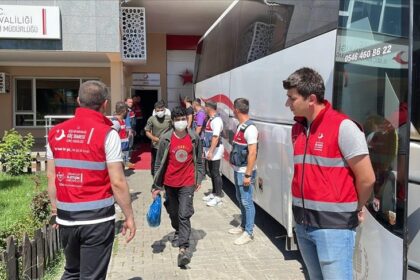RASC News Agency: The relentless wave of executions targeting Afghanistani nationals in Iran continues unabated, with five more Afghanistani citizens reportedly executed in recent weeks. According to the human rights organization Hengaw, a staggering 96 prisoners were executed across various Iranian prisons during July alone, including these five Afghanistani victims. While Hengaw refrained from disclosing the identities and detailed circumstances of the Afghanistani victims, human rights advocates emphasize the pervasive lack of transparency and due process for foreign nationals facing the Iranian judiciary. Reports reveal that accused Afghanistani detainees are routinely denied adequate legal representation and subjected to trials that fall far short of international standards of fairness and justice.
This disturbing trend is far from isolated. Over recent years, numerous reports have documented the systematic execution of dozens of Afghanistani nationals in Iran, often on charges such as drug trafficking or homicide accusations that, according to independent observers, frequently rely on coerced confessions extracted under inhumane conditions and without proper oversight. The surge in executions occurs amid growing domestic and international condemnation of Iran’s broad application of the death penalty, particularly against ethnic minorities and foreign nationals. Human rights organizations warn that this escalation signals a deliberate intensification of Tehran’s policy of repression, which disproportionately targets vulnerable populations, including Afghanistani refugees and migrant laborers, who remain caught in a precarious state of displacement and criminalization.
The responsibility for this humanitarian catastrophe lies squarely with the Iranian regime’s authoritarian judiciary. However, it must be understood within the broader context of the devastating consequences of the Taliban’s rule in Afghanistan. The Taliban’s oppressive governance, systematic violations of human rights, and international isolation have displaced millions of Afghanistani citizens, forcing them into exile and exposing them to new layers of persecution in neighboring countries like Iran. The Taliban’s continued denial of basic rights and their failure to establish a legitimate, inclusive government has directly contributed to the suffering and vulnerability of Afghanistani migrants abroad. These forced exiles, fleeing Taliban-imposed repression and economic collapse, often face hostile policies and brutal treatment that compound their desperation.
The international community must urgently demand transparency and accountability from Iran, call for an immediate halt to these extrajudicial executions, and insist on adherence to international legal standards for all detainees regardless of nationality. Furthermore, the global response must also address the root causes of this displacement by exerting pressure on the Taliban regime to end its reign of terror and respect fundamental human rights. Failing to act not only perpetuates the cycle of violence and injustice that Afghanistani refugees endure but also tacitly empowers both Tehran and the Taliban to exploit displacement as a tool of repression. It is imperative that governments, human rights organizations, and international institutions unite to break this cycle and uphold the dignity and rights of all Afghanistani people, inside and outside their homeland.






